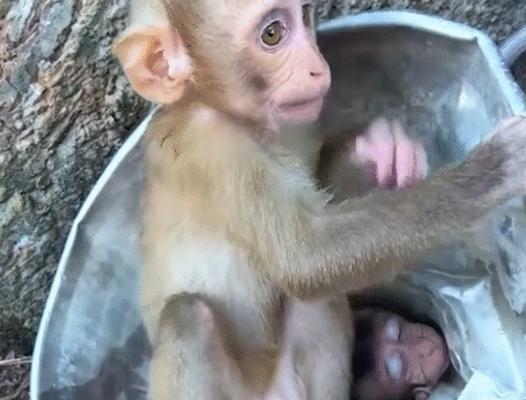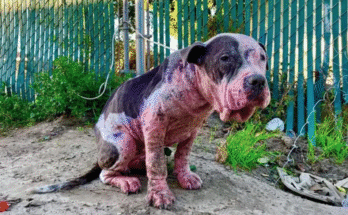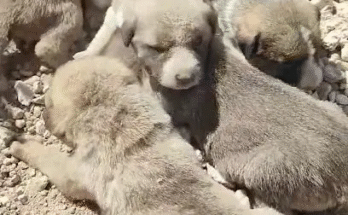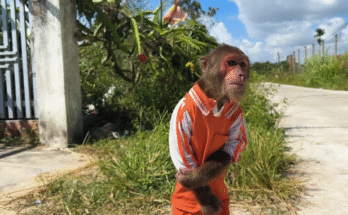The morning sun had barely begun to warm the ground when the forest near the little village came alive with chirping birds, rustling leaves, and the distant gurgle of a stream. Amidst this natural symphony, a mischievous monkey named Lalu was up to his usual tricks. Lalu was not just any monkey—he was the smartest and most curious of his troop. If something new appeared in the village, Lalu had to see it, touch it, and, if possible, taste it.
That day, something shiny caught his eye—a long, glistening metal pipe lying near the edge of a construction site. The villagers were repairing an old irrigation system and had left a pile of pipes unattended. Lalu’s heart thumped with excitement. What is that thing? Why does it shine like water but stay still?

With a swift leap from a banyan tree, Lalu landed near the pipes. He walked around them, sniffed one, and even tapped it with his knuckles. The hollow clang fascinated him. But then curiosity pushed him further. He noticed a small hole at the end of one pipe, just wide enough for his tiny arm to slide inside.
“Hmm… what if there’s something delicious in there?” he thought, recalling the sweet peanuts he once found in a clay pot. Without a second thought, Lalu slipped his hand inside. It was smooth and cold inside, and he wriggled his fingers around. To his delight, he felt something—a few kernels of corn that must have fallen inside during transport.
“Oh, lucky day!” he squealed in his monkey language. But when he tried to pull his hand out, it didn’t budge. Lalu frowned, tugged harder, and still—nothing. His fist, now clenched tightly around the corn, was too big to come back through the hole.

Panic began to set in. He pulled harder, his little body jerking back and forth, but the pipe clung to him like a stubborn snake. The more he struggled, the more it hurt. Lalu screeched loudly, startling a nearby flock of sparrows.
Soon, the commotion drew attention. Other monkeys from his troop swung down from trees, their faces filled with curiosity and concern. They chattered noisily, circling around Lalu as if holding a council. Some tugged at the pipe, others tried pulling Lalu’s body. But it was no use—the metal pipe refused to let go.
Meanwhile, a farmer named Ravi was working in his nearby paddy field. Hearing the racket, he walked over, wiping sweat from his forehead. What he saw made him laugh at first—a monkey dancing frantically with a long pipe dangling from its arm like a bizarre ornament. But then he realized the poor creature was in real trouble.
“Oh, Lalu, what have you gotten yourself into this time?” Ravi muttered. Lalu was well-known in the village for his mischief—stealing fruits, overturning baskets, even once running away with a woman’s sari.
Ravi approached slowly. The troop shrieked and hissed at him, protective of their trapped friend. But Lalu, exhausted and desperate, didn’t resist. His big, pleading eyes seemed to say, Help me, please.

First, Ravi tried to gently pull the monkey’s arm, but Lalu winced in pain. Then Ravi realized what had happened: the monkey’s fist was clenched around something inside the pipe. “Ah, greedy fellow!” he chuckled. “You don’t want to let go, do you?”
He tipped the pipe slightly, and a few yellow corn kernels rolled out onto the dirt. Lalu’s eyes darted to the corn, then back to his hand. Still, he refused to open his fist. Ravi laughed again. “Let go, and you’ll be free,” he said softly, though he knew the monkey didn’t understand his words.
The scene reminded Ravi of an old lesson his grandfather once taught him: Sometimes, holding on too tightly keeps you trapped. Freedom often means letting go.
With no other option, Ravi fetched a small bucket of water and poured it into the pipe, hoping to make it slippery. He spoke soothingly, almost like a parent calming a stubborn child. After several minutes, Lalu, exhausted and trembling, finally loosened his grip. The moment his fingers uncurled, his arm slid out of the pipe with a soft pop.
Lalu sprang backward, chattering loudly in relief. He shook his arm, flexed his fingers, and then—typical of his mischievous nature—grabbed the spilled corn before leaping onto a tree branch. The troop erupted in cheers (or at least, that’s what it sounded like).
Ravi shook his head, smiling. “You silly little rascal,” he said. “All this trouble for a few grains of corn.”
But the story didn’t end there. For days, the villagers chuckled over the incident. Some even turned it into a moral tale for their children: “Don’t be like the monkey in the pipe—don’t hold on to what traps you.”
Lalu, on the other hand, learned… well, not much. The very next week, he was seen trying to snatch bananas from a vendor’s cart. But every time he spotted a metal pipe, he gave it a wide berth. Maybe, deep down, he remembered the helpless feeling of being stuck—and the kind farmer who saved him.
The Lesson Behind the Tale
This simple yet amusing story carries a deeper meaning. How often do we humans behave like Lalu? We hold on tightly to things—money, grudges, old habits—because they feel valuable. We fear that letting go means losing something important. But in reality, these things sometimes trap us, keeping us from moving forward and living freely.
Just like the monkey, freedom often requires us to loosen our grip. Whether it’s anger, envy, or unhealthy attachments, letting go can be the key to peace and happiness.
So, next time life feels stuck, ask yourself: What am I holding on to? Because maybe, just maybe, the only thing keeping you trapped is your own closed fist.



